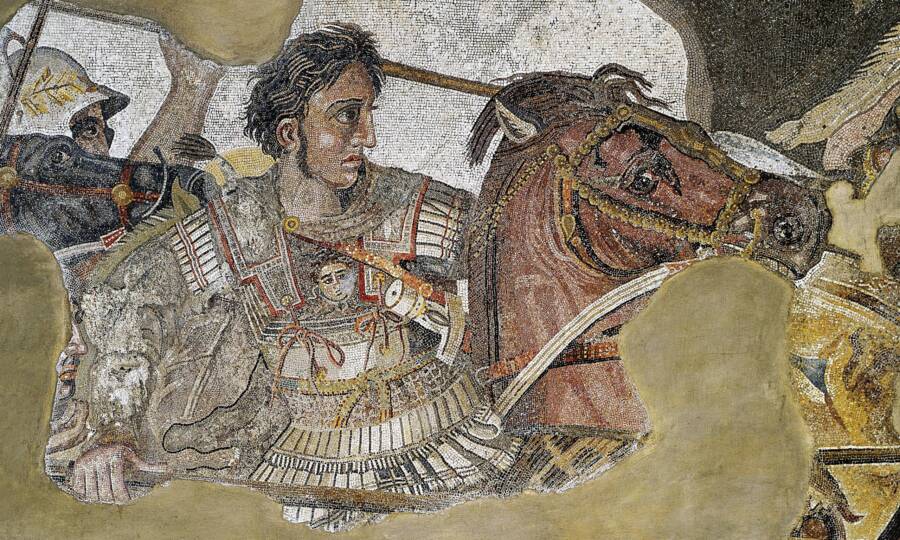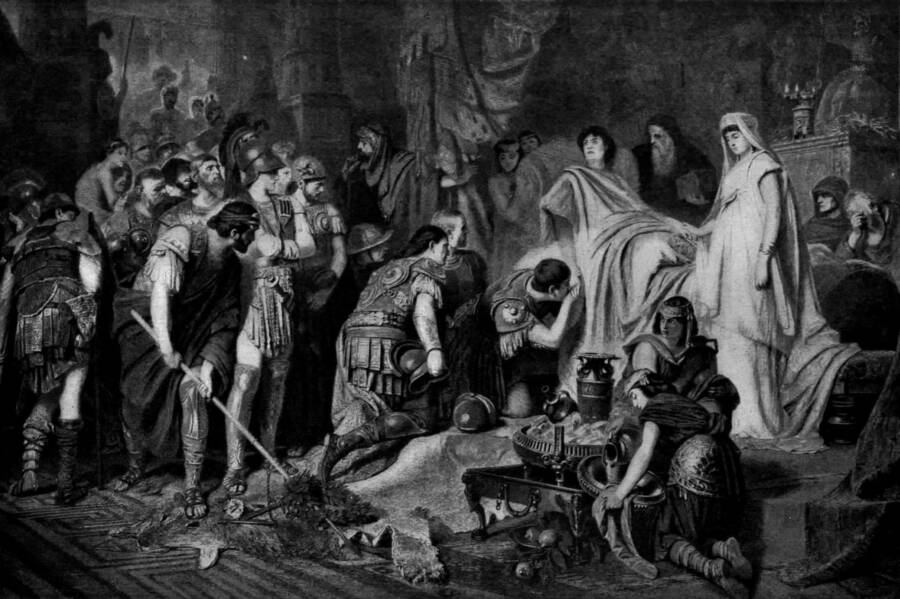How Alexander The Great Was Buried Alive

Wikimedia CommonsAlexander the Great died at age 32 after suddenly — and mysteriously — succumbing to full-body paralysis.
When Alexander the Great’s body failed to decompose six days after his death, the ancient Greeks were in awe. His loyal followers believed this was clear confirmation he was a god, but modern scientists have since posited otherwise. In fact, according to one theory, the ancient king’s body didn’t decompose because he wasn’t actually dead yet.
Alexander the Great may have been the most famous person in history to be buried alive.
According to Plutarch, an ancient Greek historian who wrote his Parallel Lives hundreds of years after Alexander’s reign using many secondary sources, the Macedonian conqueror died in 323 B.C.
After a 24-hour drinking spree, he came down with a fever and felt a sudden pain in his back “as though smitten with a spear.” Pretty soon he was paralyzed, and soon after, he was rendered speechless. Eventually, 32-year-old Alexander the Great was pronounced dead.
His cause of death, however, has remained a mystery for millennia — but one doctor recently thought she cracked it.

Richard Mortel/FlickrOne scientist believes she’s cracked the case of the death of Alexander the Great, depicted here in a statue from the third century B.C. If she’s right, then his demise was a real-life horror story.
In February 2019, Dr. Katherine Hall of the University of Otago in New Zealand posited in the Ancient History Bulletin that Alexander suffered from Guillain-Barré Syndrome (GBS). According to History, the rare autoimmune disorder can lead to fever, abdominal pain, and paralysis — which, to Hall, seems to exactly fit Plutarch’s account of Alexander’s death.
“The combination of ascending paralysis with normal mental ability is very rare and I have only seen it with GBS,” said Hall.
She suggested that Alexander contracted the rare disorder from a Campylobacter pylori infection, the “most frequent cause for GBS world-wide.”
Back in the fourth century B.C., doctors didn’t use a patient’s pulse to diagnose death — they used breath. And since Alexander was paralyzed, his body required less oxygen and his breathing was kept to a minimum. Thus, with his pupils dilated and apparent lack of response to stimuli, doctors assumed he was dead — when his mental faculties were completely intact.
Hall thinks Alexander was pronounced dead a full six days before he actually died. That explains why Plutarch described his body as remaining “pure and fresh” for days. It also would mean that Alexander was buried alive.

Wikimedia CommonsThe death of Alexander the Great, based on the painting by German artist Karl Theodor von Piloty.
Some scholars dispute Hall’s explanation. For one, her source material was written more than 400 years after the death in question, and it’s nearly impossible to properly diagnose someone without examining their remains (Alexander’s burial site has never been found).
But even still, Hall’s is a freaky theory and a real-life horror story for the ages.
“I wanted to stimulate new debate and discussion and possibly rewrite the history books by arguing Alexander’s real death was six days later than previously accepted,” Hall said.
“The enduring mystery of his cause of death continues to attract both public and scholastic interest,” she said. “The elegance of GBS diagnosis for the cause of his death is that it explains so many, otherwise diverse elements, and renders them into a coherent whole.”
It’s a tidy diagnosis, but it means that Alexander the Great — the bright military mind who conquered half the planet — may very well have witnessed his own funeral.





